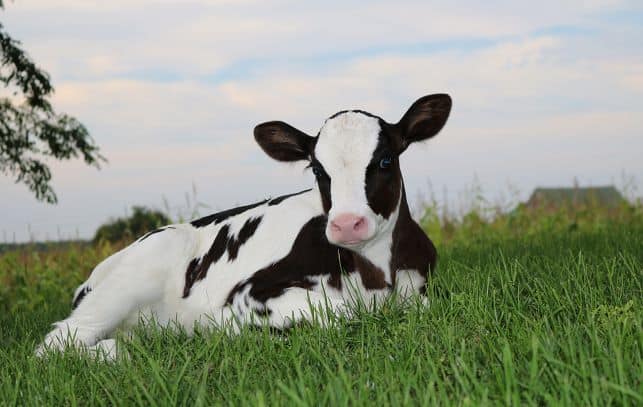Autumn calving is in full swing and, for many, that means calf rearing time is here once again. At Sharpes thought it would be handy to put together our top five tips for calf rearing, and who better to ask than the ladies from The Calf Experts?
Between them, Karen Fraser and Stacey Cosnett have bucketloads of calf know-how and they shared with us their five Cs – colostrum, calories, cleanliness, comfort and consistency.
COLOSTRUM
Colostrum is extremely important in the first few hours of a calf’s life – although it is something you might not have much control over if you are purchasing calves to rear. The rule of thumb is the 5 Qs:
- Quality of the colostrum
- Quantity of the colostrum
- Quickly into the calf on day one
- Squeaky clean hygiene of that colostrum
- Quietly so as to minimise stress to the calf
Make sure you get the first milk out of the cow and into the calf on day one, as that colostrum has the highest level of antibodies. Capturing that colostrum and giving it to the calf within the first few hours of its life is key. You want to milk the cow within six hours of giving birth, as after that the quality of the colostrum drops. The calf’s ability to absorb that colostrum also drops every hour after it is born, so time is of the essence here.
CALORIES
It’s all about energy. Make sure each calf drinks its full quota of milk to gain maximum energy, don’t let the greedy guts calves drink more than their fair share. This comes down to keeping a close eye on things, or using compartmentalised feeders. “A big issue we see is people not making sure each calf gets enough milk. If they haven’t got enough energy, they are less able to fight off illness.”
If you’re using milk replacer it’s also important to read the instructions carefully, make sure you mix milk correctly, and feed the right rate per calf.
CLEANLINESS
This may seem obvious, but it’s imperative to have a good hygiene routine. This includes things like spraying sheds with disinfectant and cleaning equipment. The better the hygiene the less the bug burden. “As soon as you store milk in something, the bacteria will start to grow. It’s also important to use new teats each season, as they can harbour bad bacteria in the rubber.”
The Calf Experts like to use a product such as hydrated lime (simple and cheap) as a base under the bedding, which aids in neutralising the pH and absorption. Making sure your shed is well ventilated with good airflow will help remove bad bugs from the shed too.
For people working with the calves, wearing gloves is best practice for protecting human health, along with general hygiene of clean boots and washing hands. If sickness in calves is present, step your hygiene up to another level.
Make sure calves have access to plentiful, clean water at all times.
COMFORT
Just like us, calves like to feel warm and cosy. If the bedding is wet, calves will be wet, shivering and become compromised. Feeling relaxed, comfortable and able to sit down is important to calves. As mentioned in the cleanliness section, good ventilation above the calves is important, but you don’t want draughts at calf height. Cosy, comfy calves will be healthier and grow better.
You want to make sure your calves have enough room, too. Allow 1.5 square metres per calf. Ensure bedding is dry and deep enough, as calves love to nest into their bedding.
CONSISTENCY
Calves are creatures of habit, they thrive on consistency of nutrition, when you feed them, how you handle them, even down to the person who handles them.
“They don’t like stress, so if you’re changing things or doing something like de-budding, try to minimise their stress.”
Consistency of feed is a biggie. By feeding pellets, like Sharpes, each day you are teaching them a habit – how to eat – which is the ultimate goal with pellet feeding. Karen explains that from the minute a calf is born, she’s teaching it how to eat.
About The Calf Experts
Karen and Stacey are two friends who both work fulltime for Farmlands. Karen has years of experience in the calf sheds, rearing thousands of calves over the years, as well as teaching others how to do it. Stacey is a nutritionist specialising in rumen nutrition. The Calf Experts is their passion project, started to share their knowledge of calf rearing with others and ensure people have access to good information.
To follow them on Facebook and learn more useful information about all things calf rearing, check them out at The Calf Experts.


